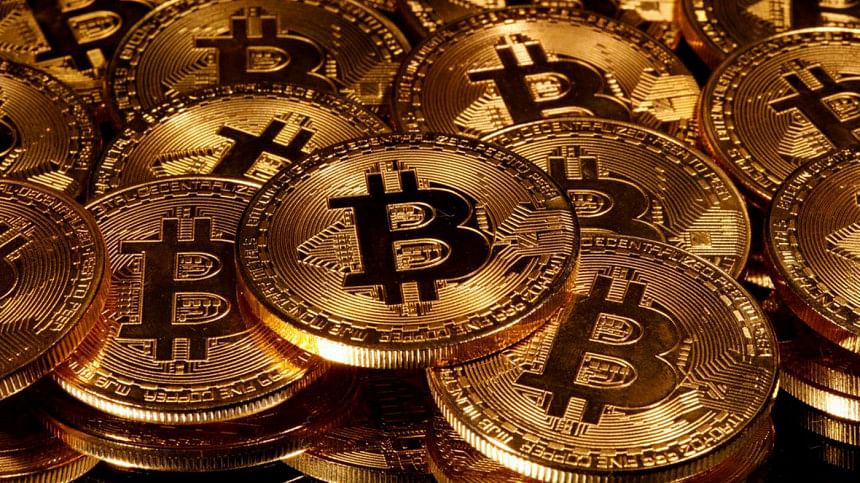Mystery, volatility, Trump: the Bitcoin phenomenon

Despite being the world's most famous cryptocurrency, Bitcoin -- whose value on Thursday passed $100,000 for the first time -- has always been surrounded by mystery and controversy.
Here are some things to know about the volatile digital unit, which has soared since Donald Trump won the US election promising to make the country the "bitcoin and cryptocurrency capital of the world":
Secret creator
In the 16 years since Bitcoin was invented, no one has been able to name its founder.
It all started in October 2008, when a nine-page "white paper" attributed to Satoshi Nakamoto theorised "a purely peer-to-peer version of electronic cash (that) would allow online payments to be sent directly from one party to another".
The idea was to break free from the control of central banks, traditionally the only institutions who can create money.
But is Satoshi Nakamoto a real name, a pseudonym, or a team of people? Despite various theories, the mystery endures.
An Australian computer scientist called Craig Wright claimed to have written the white paper, but the High Court in London ruled this year that he was not the mythical Nakamoto.
Since its creation, bitcoin has been accused of being the currency of choice on the dark web for illegal payments that leave no trace. It is also the currency that hackers usually demand to be paid in during ransomware attacks.
Fallen stars
The crypto world has been shaken by high-profile bankruptcies and the fall of several star entrepreneurs.
Changpeng Zhao, formerly head of the world's largest cryptocurrency platform Binance, was sentenced to four months in jail for violating US anti-money laundering laws.
"No wish to be CEO again. But definitely wouldn't mind a pardon," Zhao said on X this week, alluding to Trump's presidential authority to grant clemency.
Binance's main rival, FTX, filed for bankruptcy in late 2022, and its founder Sam Bankman-Fried was sentenced in March to 25 years in prison for fraud and conspiracy.
His downfall has smeared the sector's reputation, but the crypto industry has continued to call for more regulatory clarity, a cause championed by Bankman-Fried.
Towards respectability
Bitcoin investors on Thursday cheered Trump's decision to pick a crypto fan to head the US securities regulator, reinforcing hopes that the leader will push through looser measures.
Even though much of the hype around bitcoin is speculative, the currency has gained some respectability in recent years.
US financial regulators in January approved bitcoin ETFs, or exchange traded funds, which allow a wider public to invest without having to hold the cryptocurrency directly.
El Salvador in September 2021 became the first country to accept bitcoin as legal tender.
But the crypto money hasn't won over the country's population. According to a study by Central America University (UCA), 88 percent of Salvadorians never used it in 2023.
Based on blockchain
Bitcoin is based on blockchain technology, a virtual ledger that allows information to be stored and exchanged in a secure, secret and unmodifiable manner. Each transaction is recorded in real time, in a tamper-proof register.
Bitcoins are created -– or "extracted" -- as a "reward" when powerful energy-sucking computers solve complex problems. So-called "miners" validate the transactions to create bitcoins.
To prevent uncontrollable growth, Satoshi Nakamoto limited the global number of coin units to 21 million, a level that should be reached around 2140.
Every four years, the reward for "miners" is cut in two -- slowing down the rate that new bitcoins enter the market, further boosting their scarcity and their value.

 For all latest news, follow The Daily Star's Google News channel.
For all latest news, follow The Daily Star's Google News channel. 








Comments